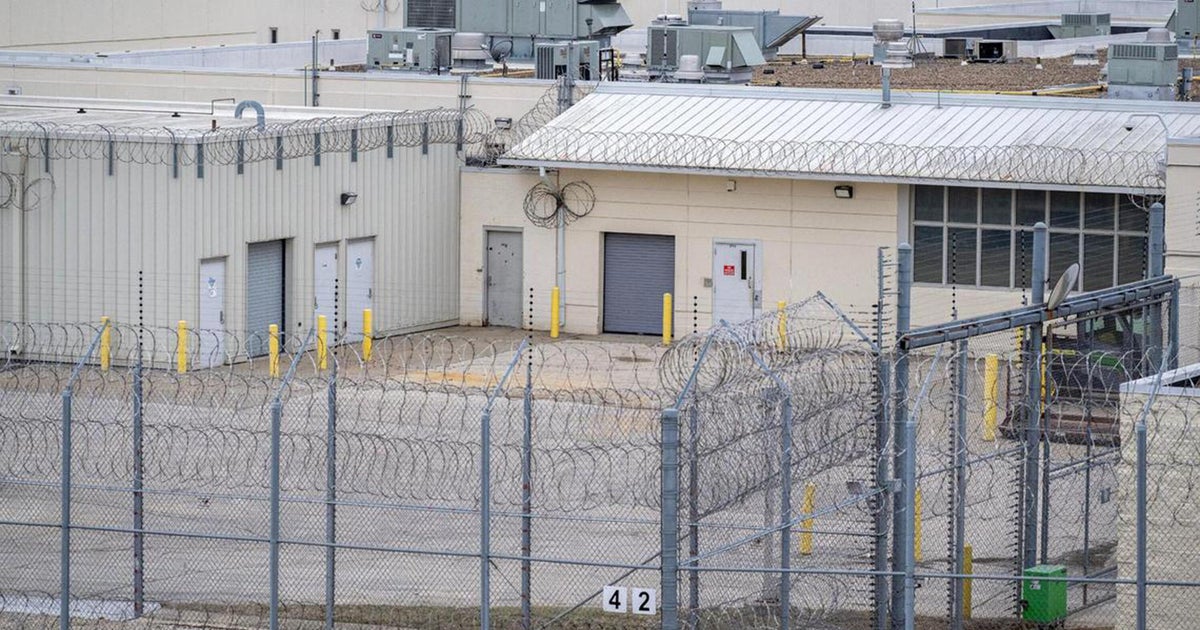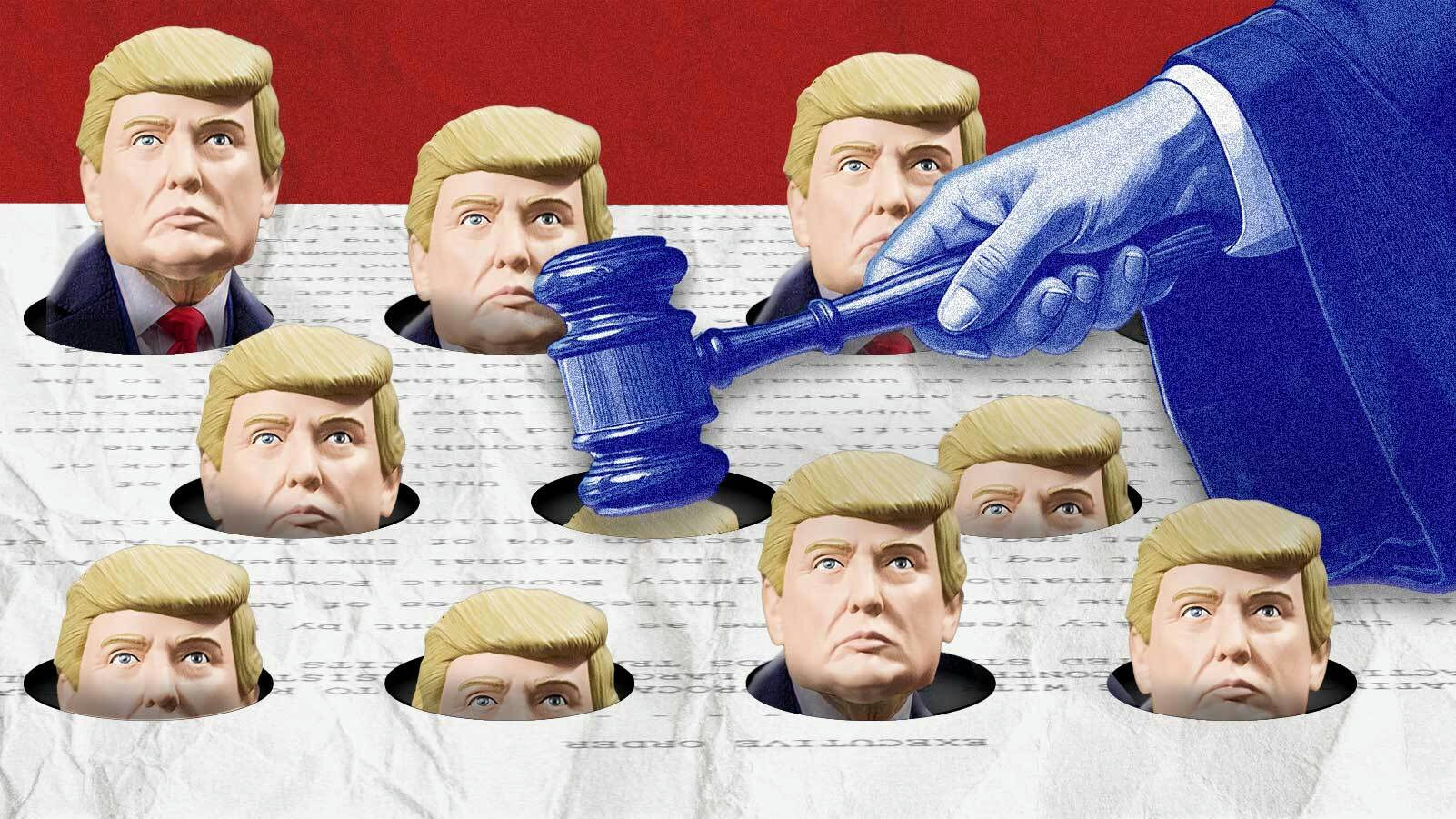Trump official says asylum changes will drive down backlog
A top Trump administration immigration official defended the effort to effectively end asylum at the U.S.-Mexico border for nearly all migrants, saying Friday it was necessary to drive down a massive backlog of immigration cases.
Ken Cuccinelli, the acting head of U.S. Citizenship and Immigration Services, told The Associated Press Friday that the Supreme Court's decision this week to allow sweeping regulations to take effect while litigation continued was a big win for the government.
"There's no underselling it," he said.
The new policy will deny asylum to nearly all migrants arriving at the southern border who aren't from Mexico because it disallows anyone who passes through another country without first seeking and failing to obtain asylum there. While officials say it's a crucial effort to help ease the strain on the system, it's also a potentially potent deterrent.
The rule falls most heavily on Central Americans, mainly Hondurans and Guatemalans, because they account for most people arrested or stopped at the border.
Juan Carlos Perla, 36, said Friday that many asylum seekers from his native El Salvador have returned, including cousins who have stayed with him in a rented two-room house with donated furniture on the distant outskirts of Tijuana.
"People know that they aren't going to be allowed in. They're desperate. Many don't like it here. Life here isn't easy," he said.
But it's also an enormous setback for other asylum seekers, including many Africans, Haitians and Cubans who try to enter the United States via Mexico.
It is perhaps the biggest change to U.S. asylum policy since it was established in 1980 and the most consequential move of President Trump's crackdown on immigration, a signature issue as he heads into a re-election campaign.
Critics have accused the administration of callously closing the door on people fleeing persecution and abandoning America's humanitarian tradition.
Many of the officials who make determinations on asylum claims believe the new regulations are wrong, according to Michael Knowles, an asylum officer and spokesman for the AFGE National CIS Council 119, which represents asylum officers.
"You're asking us to do something that we believe is unethical at best and illegal — if not an egregious human rights abuse at worst. It creates a moral dilemma for asylum officers because they are made to feel individually complicit in that abuse," he said.
Avril Benoit, executive director of Doctors Without Borders, said the regulations guarantee vulnerable people will be exploited, forced to wait "in overcrowded shelters or on the street in unsafe cities along the US-Mexico border where they are targeted for robbery, extortion, and kidnapping."
Administration officials have brushed aside concerns over safety, arguing that significant humanitarian progress had been made in countries like El Salvador and Guatemala. Cuccinelli praised Trump administration efforts he said were working toward lasting alliances.
Homeland Security officials said that asylum screening will look generally the same as before, with the added hurdled of an additional question on whether the applicant had sought asylum elsewhere.
Many asylum seekers denied refuge under the new policy will be placed in fast-track deportation proceedings and flown home at U.S. expense, authorities said. It's not clear how long that process would take.
Some seeking refuge may get to stay in the United States through other legal avenues, including seeking protection under the United Nations Convention Against Torture, but the threshold to qualify is much higher.
Cuccinelli said the new policy could mean more refugees allowed into the country next budget year. Officials have been eyeing drastic cuts from 30,000 to 10,000. Asylum officers are a separate pool from refugee officers, but many have been reassigned to the backlog of asylum cases.
"Our biggest true backlog is the asylum case backlog. Over half that backlog, 335,000 cases is over two years old. That's a real backlog."
An unprecedented surge of asylum-seeking families from Central America has overwhelmed U.S. authorities during Trump's tenure.
Under another Trump administration policy, introduced in January, more than 40,000 asylum seekers have been forced to wait in Mexico while their cases wind through the clogged immigration courts.
Even before the new restrictions took effect, many were giving up while waiting in dangerous Mexican border cities. Gustavo Banda, who manages the Ambassadors of Jesus shelter in Tijuana for about 600 migrants, said recently that about half of residents who have been returned to Mexico to wait for hearings had returned home.
Central American women staying at the shelter with young children said in interviews they felt unsafe outside the shelter and had no job prospects in Tijuana.
The sense of despair was evident at a recent immigration hearing in San Diego, where only five people showed up on a docket of more than 40 cases.
The first asylum seeker under the "Remain in Mexico" policy, a Honduran man who crossed the border in late January and spoke to The Associated Press last month on condition of anonymity out of fears for his personal safety, said he often saw other Central Americans toss their court documents in the garbage in Tijuana, certain they would never get asylum.
Cuccinelli said he wasn't sure yet whether the newest restrictions would render other administration efforts unnecessary, especially because they are all under litigation. "There's nothing that has happened here, while I've been here, that I haven't felt very confident was well within the boundaries of the law."



